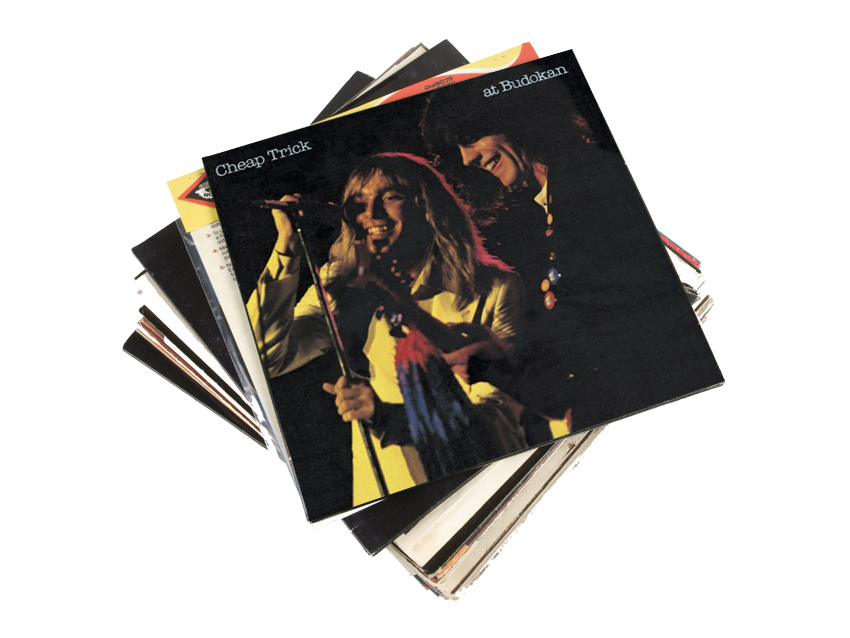
Cheap Trick At Budokan - the classic 1979 live album track-by-track
“It really captures the band hitting very hard and a crowd going totally nuts," says Cheap Trick guitarist Rick Nielsen of the band's beloved 1979 album, Cheap Trick At Budokan. "It’s exciting, joyous, positive – and that’s just my guitar playing! The best thing is, it still sounds new. You can listen to the album today and still get caught up in it. That’s pretty cool.”
Oddly enough, it's a record that was never meant to happen: Following their 1977 self-titled debut, the Rockford, Illinois band - singer Robin Zander, bassist Tom Petersson, drummer Bun E. Carlos and Nielsen - issued two more albums, In Color (1977) and Heaven Tonight (1978). All three garnered critical praise, and all three moved unimpressive numbers.
Except in Japan, where the band had become stars. “It was the strangest thing," Nielsen recalls. "Queen had heard our first album pre-release and asked us if we would open two shows. Japanese journalists came to see Queen, and while they loved them, of course, they thought that the opening band - us - really had something. So they started writing about us."
A duplicate scenario unfolded several months later when Cheap Trick opened for KISS. "Before you knew it, we were on the cover of all these Japanese music magazines – and we hadn’t even been to the country!" says Nielsen. "Then we had hit singles with Clock Strikes Ten and I Want You To Want Me. When we were asked, 'Hey, do you want to tour Japan?' it was like, 'Uh, yeah. Sure!”
Five thousand screaming fans greeted Cheap Trick at Tokyo's Haneda Airport, recalling the glory days of Beatlemania. "I thought the president of Japan was on the plane or something," says Nielsen. "We were just flying coach." At their hotel, the band members were put under 24-hour guard. "There were kids everywhere trying to get to us," Nielsen says. "We were told not to look out the windows of our rooms, otherwise kids outside would faint and go crazy. We couldn't believe it. All this for us?"
Both of the band's sell-out shows (28 and 30 April, 1978) at the Nippon Budokan arena in Tokyo were taped for radio and TV broadcasts, and to capitalize on the group's success, Epic in Japan decided to issue an album. It didn't take long for imports to flood the US market, thus necessitating an American release.
When Cheap Trick At Budokan was released in the US, the raucous live versions of Surrender and I Want You To Want Me became immediate radio sensations, and the album stormed the charts, selling so well and for so long that it held up the release of the already-recorded Dream Police by half a year. "It was a nice problem to have," says Nielsen.
Recalling the Budokan shows that would ultimately break the worldwide, Nielsen says, “We knew we were being taped, but truthfully, we didn’t feel a lot of pressure. It wasn’t like, ‘’Oh boy, we’d better be good tonight…’ We thought we were good every night!"
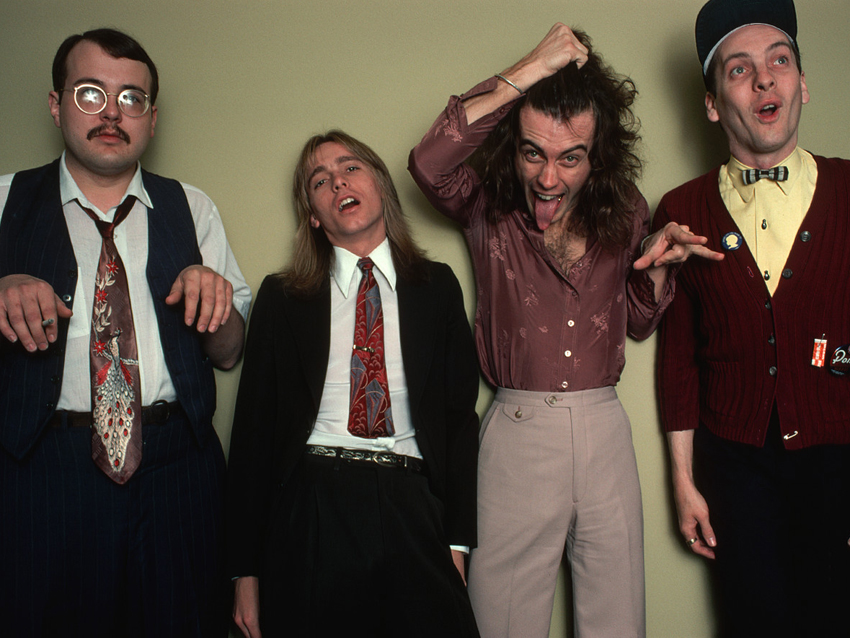
Hello There
“'Here we are! Welcome to the circus!' It’s the first song of the first show of our first tour of Japan. It made sense to start with this one.
“The reason why I wrote it goes back a ways: When we were an opening band, a lot of the time we wouldn’t get a soundcheck. Hello There was our soundcheck. One instrument at a time, gunning it over and over… by the time Robin started singing, our mix was usually in place and we sounded good.
“It's the best kind of song to start a show with. I’ve seen bands come out and begin their concerts with these long, slow, boring songs. Are they kidding, or what? It reminds me of somebody told me about a book once: ‘Yeah, you start to get into it after the first 150 pages.’ Wow, that sounds like something I’d want to read! Come on...
“Hello There is quick, it’s good and it’s easy to play.”
Listen: Cheap Trick - Hello There

Come On, Come On
“It’s a fun sing-along. We have a few of them. Some are more poppy, others are rocking. Any time you can get the audience reacting to one of your songs, you’re halfway there.
“The chorus almost demands audience participation. It’s a shouting out of ‘Come on, come on!’ – even if you’ve never heard the song before, you know what to do. By the fourth chord, this thing is committed to memory.
“Also, a song like this you can have a lot of fun with on stage. I don’t pose per se, but my motions are… well, they’re exaggerated. It’s cool when you know what notes to hit. I think there’s a lot of E's in this one.”
Listen: Cheap Trick - Come On, Come On
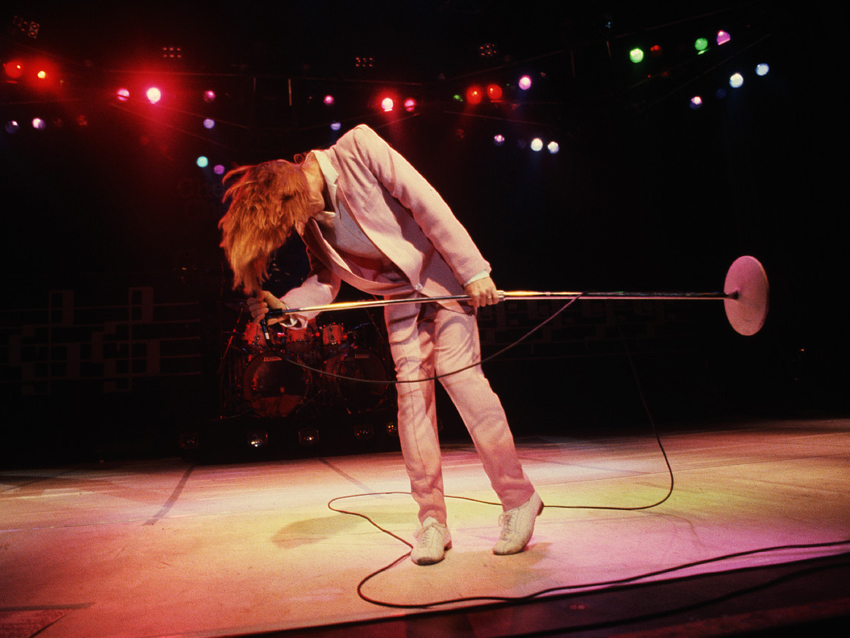
Lookout
“I like this song. It’s got a lot of layers and dimensions to it. It’s kind of pop, but it’s got that orchestrated middle part a la Dream Police. It builds up to a guitar-bass-drums crescendo that’s pretty cool.
“My guitar playing is... I was never into the whole guitar virtuoso thing. It’s like, who cares? I’d rather be musical than technical. I always thought of myself as more of a rhythm player than a big soloist. You make do with what you’ve got.
“Lookout is fun, it’s fast, it starts and stops, it’s loud. Basically, it’s a Who pop song. We never emulated The Who, but if we ever stole anything from them, at least we changed the key.”
Listen: Cheap Trick - Lookout
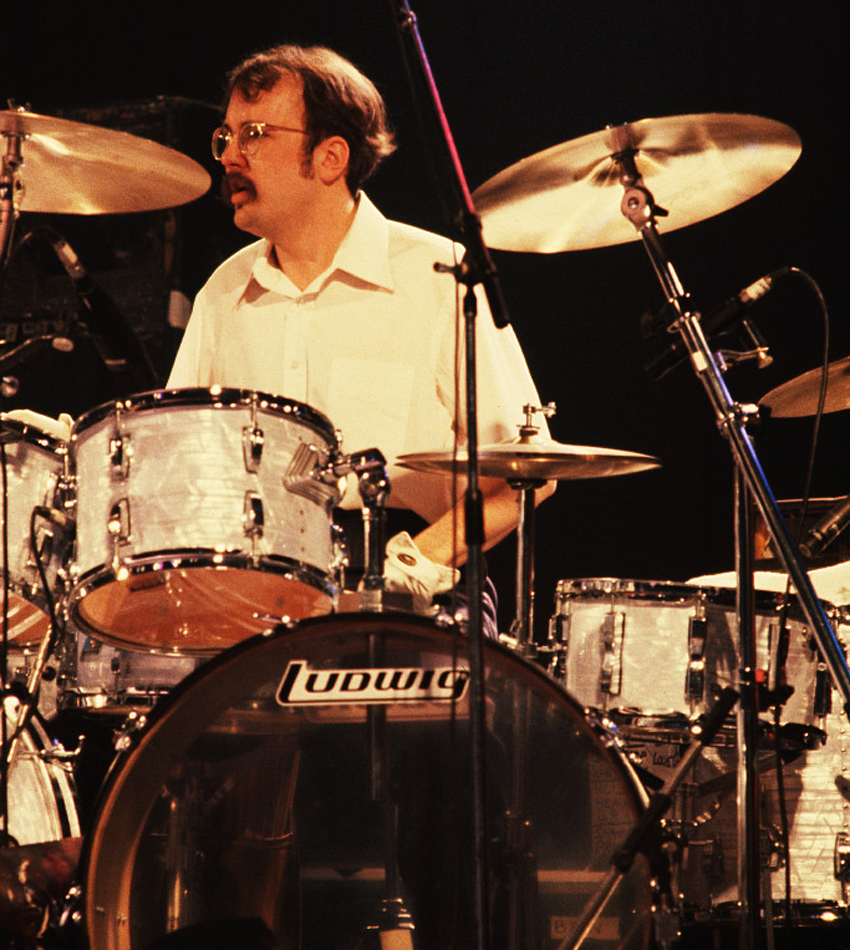
Big Eyes
“There’s some fun turnarounds and riffs in Big Eyes. It’s one of those songs that sounds easier than it really is. It seems like it’s a three-chord rock song, but it’s not – there’s a lot going on.
“We don’t play it just so we can confuse ourselves, but it seems like that sometimes. The chorus is pretty reminiscent of our being influenced by Alex Harvey, even though it’s different from Alex Harvey.
“This is a great version. I sing all of the high notes. My voice is kind of crappy, and Robin’s voice is too good. Tom’s voice is low, with a bit of Midwest nasal twang. Together, we don’t sound too pretty, but we don’t sound like a bunch of drunk guys in Newcastle, either. We sound just right.”
Listen: Cheap Trick - Big Eyes
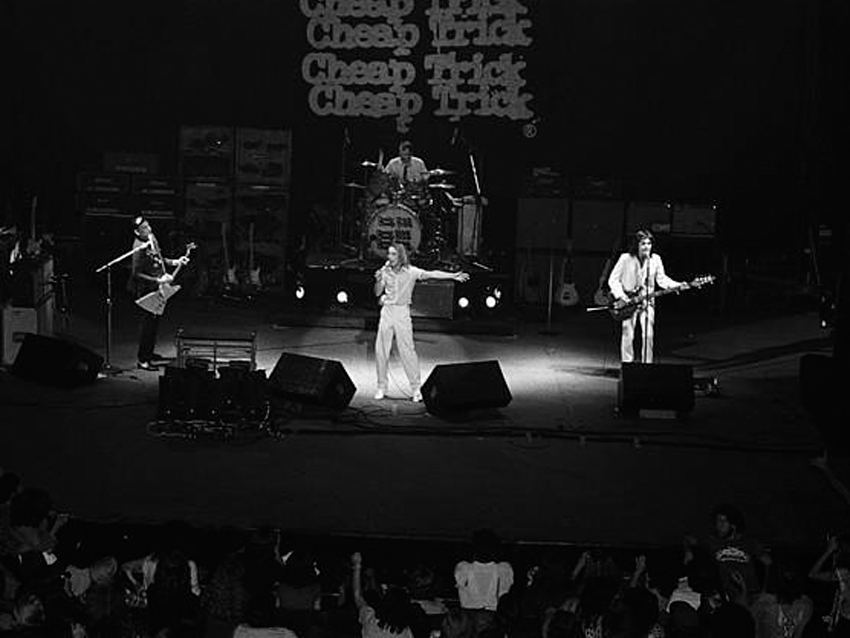
Need Your Love
“A good, heavy pop song. It’s too long, but there’s a lot of dynamics. Lyrically, it’s our not-up-to-the-challenge of a John Lennon song.
“I think of this one, and the image is of watching a drunk guy who trashes around at a show, bangs his head against a wall, jumps into a moshpit, but then he gets out and goes to his girlfriend and asks, ‘Are you OK, honey?’ If you wanna get laid, you have to be nice occasionally.
“That’s why Robin’s voice is so great: he can go from being the nasty villain to the sweet, lovable guy, and switch them back and forth. A song that’s gooey all the way through is disgusting; on the other hand, if you’re just ‘Kill your mother, kill your father, kill your dog!’ the whole time, that’s too extreme the other way. This song has the balance.”
Listen: Cheap Trick - Need Your Love

Ain't That A Shame
“We were asked to do a cover song for the show, which was fine - we’d always done some covers. One day, we were listening to John Lennon’s Rock ‘n’ Roll album, and one of the songs on there is Ain’t That A Shame. ‘Hey, if it’s good enough for John Lennon…’
“We did our own version of it, throwing in all the breaks and build-ups. It’s a simple three-chord song, so we made it way harder than it had to be. We kind of made it a cross between the ending of The Beatles’ The End and something from the Bonzo Dog Doo-Dah Band.
“The ending is kind of anything goes. For the audience, it’s like, ‘Listen to that! No, wait, listen to that! But wait… listen to that!’ We weren’t trying to top one another. We were just up going, ‘This is cool!’”
Listen: Cheap Trick - Ain't That A Shame
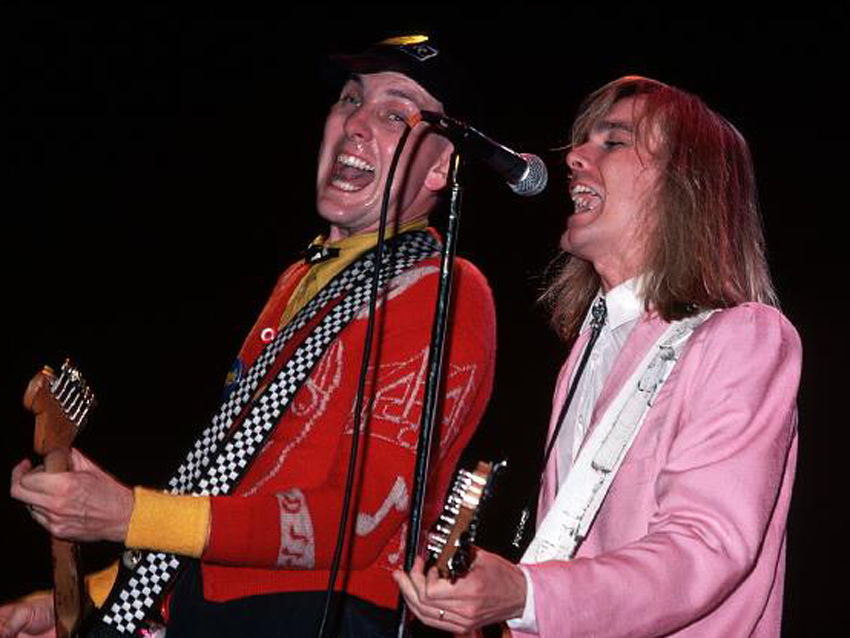
I Want You To Want Me
“The way we did it at Budokan was the was we played it in the clubs. In the studio, it got wimped out and toned down, very namby-pamby. We didn’t want to play it as candied as the In Color version, even though the Japanese liked that one. So we decided to rock. You don’t have that honky-tonk piano. It’s much heavier.
“Lyrically, c’mon – ‘I want you to want me/ I’m begging you to beg me…’ There’s a little cynicism in it; it’s not all lovey-dovey, but it says what it needs to say. Some people’s lyrics have things like ‘The cuspice of the moon is on the 13th day.’ Huh? You have to read Aleister Crowley to figure out a verse. Give me a break.”
Listen: Cheap Trick - I Want You To Want Me
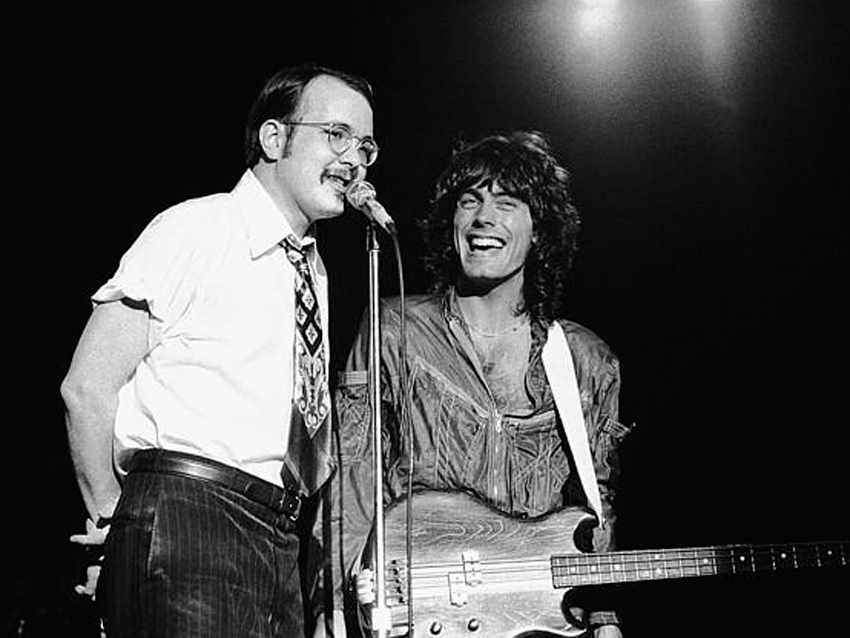
Surrender
“The song had just come out in Japan when we played it at Budokan. It's another sing-along. Truthfully, I was always amazed that people liked it so much, because the story has double-entendres, triple-entendres, things are half true, half open to interpretation – it’s a lot.
“We talked slowly between songs. The promoters told us that the audience really wanted to hear us and understand every word. That’s why you hear Robin’s complete intro to Surrender – ‘This next one is the first song… ‘ – the way the mics were placed, you got the echo from him with the crowd screaming.
“Everybody's parents are weirdos. And if you don’t think your parents are weird, your friends do. That’s what I wrote about in Surrender. I’m kind of making fun of everybody, but I'm telling you to keep your head up.
“It’s funny: People still love the song. I’ve got tapes of Green Day and the Foo Fighters playing it. Even Taylor Swift has done it. It’s got a good hook, and it’s not played out.
“The excitement is kind of built in. We start off on B-flat and then modulate to D, and then we modulate to C. It always went over well. Did we know it was a classic? We knew it was a good song. That very first line: ‘Mother told me, yes, she told me…’ You feel like you know it the minute you hear it.”
Listen: Cheap Trick - Surrender
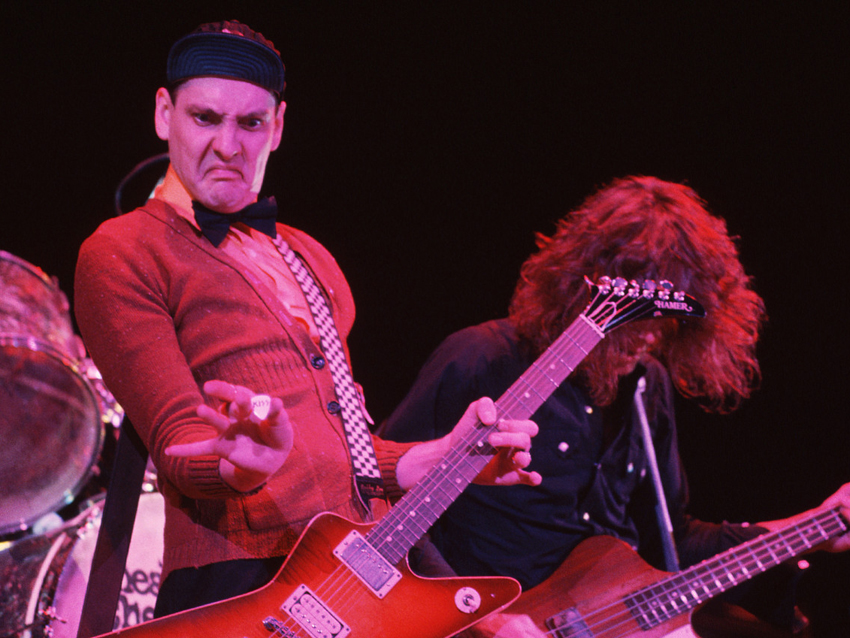
Goodnight Now
“Well, let’s see… We know the intro. Now, get the heck out of here! [laughs] I refer back to Hello There. It’s us saying good night without really saying ‘good night.’ Not yet anyhow.
“You want people to leave on adrenaline, but still wanting more. I can’t stand it when groups come back for an encore and they play some slow thing. Oh, brother! It’s like, ‘Had I known that, I would’ve left.’”
Listen: Cheap Trick - Goodnight Now
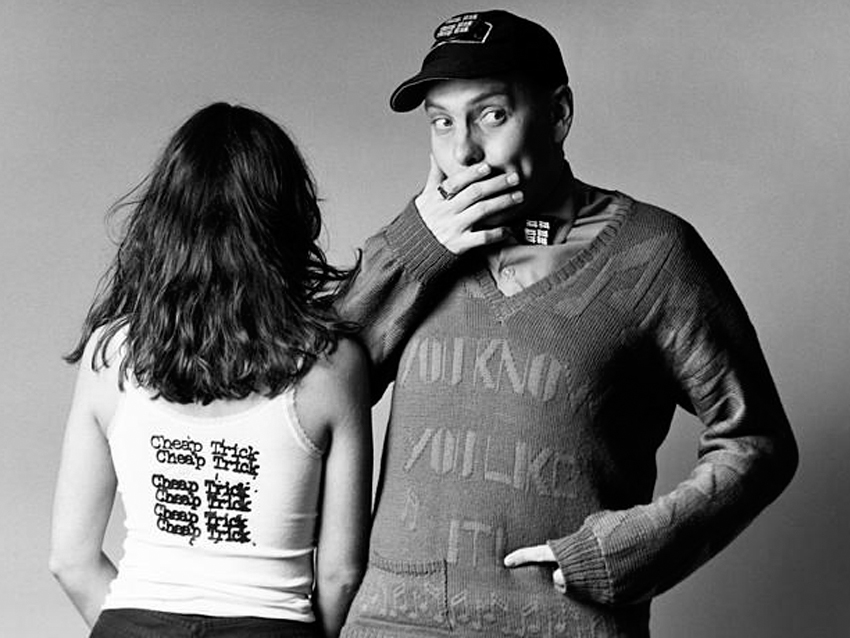
Clock Strikes Ten
“Once again, it’s an encore, but as Martin Mull said, ‘We saved the best for last.’ Here we are at Budokan, and we’re going out on a hit. The audience went crazy. Beat that!
“Musically, the song is pretty uncomplicated. I play a riff on the A and go straight down, hitting every note. Nobody does a riff that simple, but that’s why I did it.
“The song gets to the point about going nuts on a Saturday night. And not like Elton John’s Saturday Night’s Alright For Fighting – that’s too cerebral. Here we’re like, ‘Clock strikes ten, it’s a Saturday Night/ imagine what we’re doing tonight.” That’s it. Nothing else to think about.”
Listen: Cheap Trick - Clock Strikes Ten

Joe is a freelance journalist who has, over the past few decades, interviewed hundreds of guitarists for Guitar World, Guitar Player, MusicRadar and Classic Rock. He is also a former editor of Guitar World, contributing writer for Guitar Aficionado and VP of A&R for Island Records. He’s an enthusiastic guitarist, but he’s nowhere near the likes of the people he interviews. Surprisingly, his skills are more suited to the drums. If you need a drummer for your Beatles tribute band, look him up.
"At first the tension was unbelievable. Johnny was really cold, Dee Dee was OK but Joey was a sweetheart": The story of the Ramones' recording of Baby I Love You
"Reggae is more freeform than the blues. But more important, reggae is for everyone": Bob Marley and the Wailers' Catch a Fire, track-by-track
"At first the tension was unbelievable. Johnny was really cold, Dee Dee was OK but Joey was a sweetheart": The story of the Ramones' recording of Baby I Love You
"Reggae is more freeform than the blues. But more important, reggae is for everyone": Bob Marley and the Wailers' Catch a Fire, track-by-track









